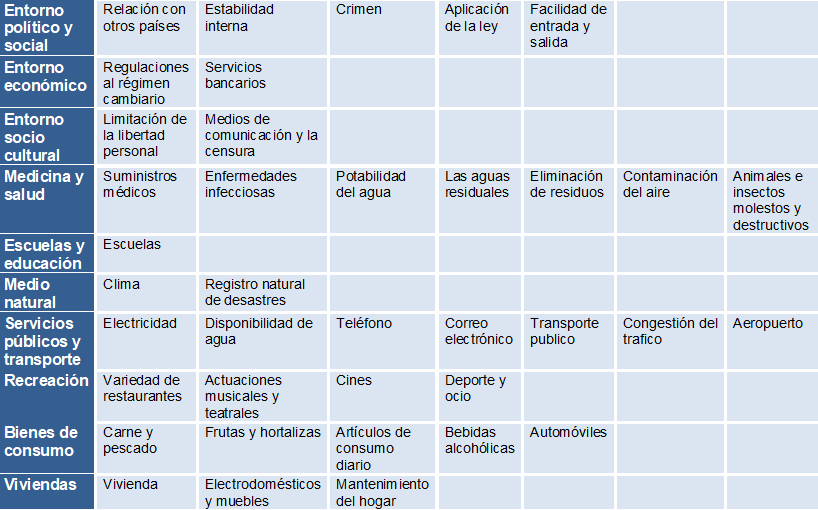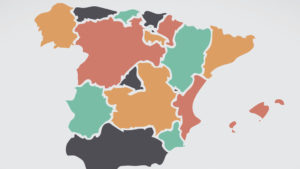Introduction
The progress of the countries will have to happen from the bottom up and not the other way around. Pretending that an underdeveloped country reaches the levels of advancement of the most developed countries is a demand as optimistic as it is distant. Given that at national levels the differences are very deep and it is necessary to think in very long terms to be able to eliminate that distance.
That is why it is necessary to consider progress not from national governments, but from local governments. The countries will be able to be developed thanks to the fact that their Municipalities will be, thus transforming the Nation. Thinking of Argentina, where 90.9% of the cities have less than 200 thousand inhabitants and where 40% of the population is concentrated[1]. Transforming these localities in such a way that they reach the quality parameters of the most advanced cities is neither impossible nor far. By concentrating on small communities the task is much easier and more manageable. Being geographically and demographically small cities, they are much easier to transform than the nation as a whole. But if these localities are developed, the Nation will be developing. In such a way that it will not be the national state that takes the development to the Municipality but the Municipality to the Nation. Taking as a reference the annual ranking carried out by the MERCER consultancy where cities are ordered according to the quality of life they offer and taking their parameters to classify them. For a city with less than 200 thousand inhabitants and therefore a reduced geographic area, complying with these parameters is possible and in a short term, as long as it has the cooperation of other local governments that have already reached the highest quality standards. This does not necessarily require large investments of money, but decision and seeking help in other municipalities. For this, it is essential to know how these developed cities have reached that level of progress.
[1] Datos INDEC Censo 2010
Premise
Through the development of local governments is that the development of nations will be achieved.
Developing
In Argentina, 90.9% of the cities have less than 200 thousand inhabitants and 81.8% have less than 100 thousand inhabitants. 40% of the population lives in towns with less than 200 thousand inhabitants. If we carry out the projection At the international level, we see that in 2010, 51.3% of the world population living in urban settlements did so in cities with less than 500 thousand inhabitants., estimándose que en el 2015 ese valor será el 48,5%[1].
[1] World Urbanization Prospects, 2011 UN
The
MERCER consulting firm takes as a reference to determine the quality of life of
cities ten parameters:

Taking as a case a city of 100 thousand inhabitants in the interior of Argentina. We will go on to exemplify what the situation would be in each of the cases, evidencing that a locality can progress in these aspects regardless of the direction of the nation. As long as you have the appropriate advice, based on the experience of other cities. In this way we can show that public policies carried out by local governments have a greater impact on the transformation of communities than that of intermediate or national states.
- Environment political and social
On Regarding the relationship with other countries, a locality of these characteristics can be developed in this area with great success through twinning with other cities, participation in international organizations dedicated to local governments, attendance at various regional and global forums related to topics of interest to the community, etc.
On Regarding internal stability, having a generated action plan does not only by local authorities, but in collaboration with other governments locals who provide their experience and knowledge of planning the Public Management. It generates in the different political leaders a unit of interests in order to achieve the projected objectives.
On Regarding the application of the laws, these types of cities are relatively easy to control due to having a geographic area sufficiently small enough to have a state presence in all its areas.
- Environment economic
En esta área los gobiernos locales no tienen la posibilidad de influir, tanto en el régimen cambiario como en los servicios bancarios. Sin embargo, tiene ciertas herramientas a su disposición a fin de mejorar su economía. Por un lado puede promover la radicación en la ciudad de entidades bancarias, de empresas de préstamos personales, que den financiamiento a sus ciudadanos, brindar desde el municipio préstamos, coordinar con comerciantes locales distintas políticas, etc.
- Environment cultural partner
On this topic there are two questions that assess that in a small municipality they are easily accomplished. When it comes to the media, they are usually few and therefore easy to know if any censorship or pressure from Some kind. The same applies to personal freedoms.
- Medicine and health
With a reduced population infectious diseases are controllable. Being the caring for the environment is a feasible task since the scales are small, both the generation of waste and the pollution generated.
- Schools and education
On this point, although the ability to build schools in general is beyond the financial possibilities of a municipality, can have an influence on the education from another place. For example implement within schools the latest technologies and pedagogical trends exist. Consulting with avant-garde cities on the subject, such as Birmingham in England. Likewise, getting information in international forums on the matter and even organizations specially created by the countries that are dedicated to improving the education such as the Abu Dhabi Education Council (ADEC). As well as generate agreements with private companies or foundations to participate with their capabilities. In other words, beyond the expensive infrastructure, a municipality you can make an educational difference by being open to ideas and projects that exist in the world.
- Services public and transport
En lo referente al tráfico y al transporte publico, es de competencia exclusiva de los municipios. Pueden mejorar el transporte publico en eficiencia, calidad de servicio, independientemente de como sea fuera de la ciudad. Lo mismo sucede con otros servicios públicos, tanto como el suministro de agua, la electricidad, el acceso a internet y demás
- Recreation
The recreation, is purely the responsibility of local governments. These are those who have the power to establish gastronomic poles, carry out film festivals, theater and other cultural activities. As also promote sport and the creation of green spaces intended for recreation.
On In short, what is being proposed is that the municipalities have the ability to develop their cities and improve the quality of life, approaching to the parameters of the most advanced cities, regardless of the context national or provincial in which it is immersed.
Methodology
The steps to follow to develop the project are three:
- First: prepare a detailed report on how developed municipalities work.
- Municipal organization chart
- Organigrama de cada una de las áreas de gobierno
- Human Resources:
- How many people work in each area.
- Characteristics of the workers (age, sex, training, experience, etc.)
- Function entry mode public of the employees (through competition, recommendation, agreements with educational institutions, personal relationships, etc.)
- Career based on meritocracy or seniority promotions.
- Working mode of each
area:
- How to identify or
prevents, the existence of a problem.
- Planning method the policies to be implemented.
- Application mode.
- Follow up on it.
- Modifications based on observed results.
- How to identify or
prevents, the existence of a problem.
- Pairing mode of the municipality with citizenship
- Government relationship with the media
- Second: Do the same from the first point but on the Argentine municipalities.
- Third: Establish a comparative analysis between the two.
Set up a comparative analysis between the two. Seeing the differences and similarities. Considering the policies applicable to Argentine municipalities. Having in account for cultural, historical, economic, idiosyncratic differences, regional context, etc. In order to know how to adapt those methodologies to that are successful in another context.






